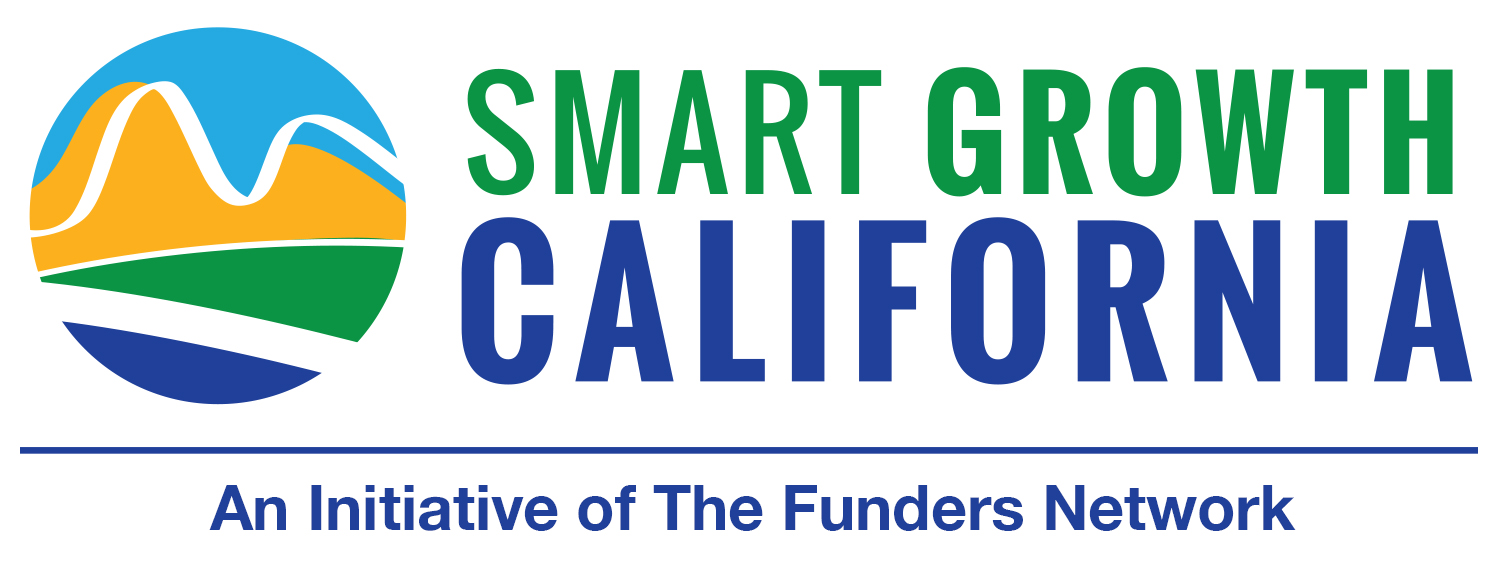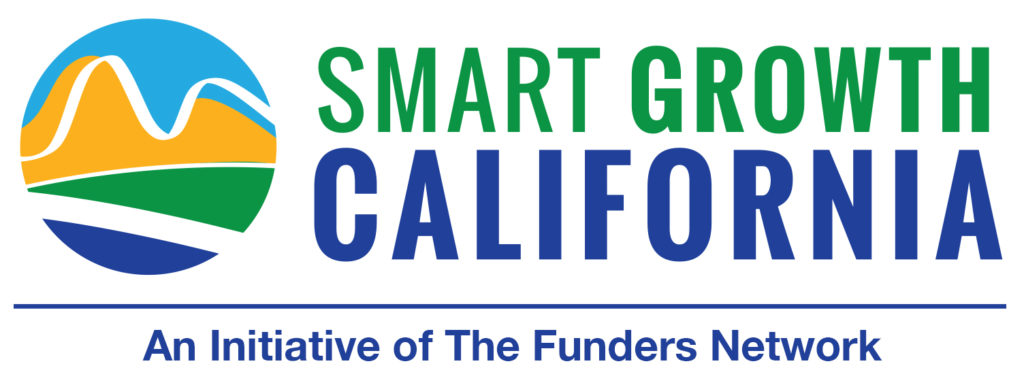On October 3rd and 17th, 2019, funders from across the state engaged in a two-part dialogue to learn about one of California’s most complex and misunderstood topics: water. In the last few years, Smart Growth California has engaged our funder network more deeply in the interplay between water and other smart growth issues – land use, housing, fire, energy, health, etc. – and hosted the Water, Land Use and Smart Growth in California series to bring more funders into the conversation. Below is a breakdown of some of the themes that were lifted up, and the philanthropic collaborations happening across the state to work on these issues.
Where We’ve Been and Where We Are
Water rights as we currently understand them began during the Gold Rush, when hydraulic fracking impacted streams and affected ranching downstream. These issues combined with a tremendous drought caused ranchers to make their case for control, and California created a water rights program. Decades later, the 20th century water landscape became characterized by huge infrastructure investments, including major water conveyance systems. Back then, we thought of water like a commodity, managing and using water without the long-term human or environmental considerations. Now, with 21st Century science and a more engaged electorate, we are seeing water management for the first time move towards a watershed scale, asking questions about resiliency, equity, and the thoughtful management of water that aims to use each drop as many beneficial times as possible.
We still have a long ways to go.
Water disparities in California (and throughout the globe) can be looked at through three lenses: water supply, water quality, and water access/affordability. While each of these areas comes with technical and logistical complications and solutions (treatment facilities, the consolidation of water systems, other cost-effective water technologies), “there is no amount of technological innovation that will get us out of the structural racism and decades of compounded inequality,” says Camille Pannu with the Water Justice Clinic at UC Davis.
On top of that, water is a deeply fragmented issue. Whether through misaligned and geographically disjointed decision-making bodies, the challenging interplays between tenant and landlord accountability for water usage and systems, or the broken system of water politics and decision-making, there tends to be a lack of democratic accountability, says Camille. “The way we’ve structured jurisdictions in the west is not conducive to resilience. We should be leveraging water to connect us across the sectors…and to ensure accountability and that vulnerable communities don’t get left behind.”
Connecting the Dots (and Drops!)
The fragmentation of water systems and issues is not unlike philanthropy at times, says Joya Banerjee from S.D. Bechtel Jr Foundation, who serves on Smart Growth California’s statewide steering and the San Joaquin Valley Funder Working Group. “It is easy to get stuck working in our geographic and issue siloes, so we (Bechtel) took a deliberate effort to experiment partnering wherever we could with other place-based funders, working on a range of issues and bringing water into the conversation.”

The intersection of water, land use and equity is an area where the Community Foundation Water Initiative (CFWI) has centered their interest. This statewide collaborative of five community foundations – San Francisco Foundation, Silicon Valley Community Foundation, Central Valley Community Foundation, California Community Foundation (Los Angeles) and San Diego Community Foundation, funded by the S.D. Bechtel Jr. Foundation – has worked together over the last four years to deepen their understanding of the ways that water intersects with their work. Yen Kilday, Director of Programs and Evaluation for the Central Valley Community Foundation shared about the value of their experience: “The CFWI setting allowed for quality learning from our fellow cohort members as well as expert speakers and access to direct technical assistance. This approach allowed us to move beyond our specific region and learn about water and land use across the state and the interconnectedness of all of our regions.” As Yen’s CFWI colleague shared in a recent meeting, “anyone working on smart growth is already working on water, whether they know it or not.”
Together, the CFWI co-funded a report on water, land-use and equity, authored by the Local Government Commission, that lifts up statewide and regional priorities to integrate the three areas. CFWI is in their second phase of funding to support a cohort of NGOs from each region to develop action plans to implement some of the report’s recommendations, both at a regional and statewide level.
Greater alignment is happening at the State as well. The Governor’s Office is working to address both the equity issues undergirding water disparities as well as the fractured systems themselves. Debbie Franco from the Governor’s Office of Planning and Research shared that “water connects to everything, and must be approached from a systems perspective. At the state, we are putting together a water resiliency portfolio…to promote the alignment of water and land use. We need to figure out how to align and collaborate at different scales to promote resilience. It’s always hard crossing sectoral boundaries, but it’s essential for driving us to resilience, always leading with equity.” The CFWI-funded report will serve as a resource and roadmap to the state as they build this roadmap.

Working at Ground Zero
Further funder alignment is happening in the San Joaquin Valley, ground zero for water disparities. The San Joaquin Valley Funder working group is made up of funders from nearly every smart growth sector – housing, climate, health, energy, environment – and has identified water as a central point of intersection. With the recent passage of both the Sustainable Groundwater Management Act (SGMA) and SB200, the safe and clean drinking water fund, funders see an opportunity to highlight work in the Valley and to bring added capacity to San Joaquin Valley nonprofits.
The SJV workgroup and its partners have developed a fund that will support Valley-based organizations in building power to work on water and land use, with the long-term goal of deepened engagement and leadership for a broad cross-section of issues. The fund, still in its early stages, seeks to leverage over $3 million in new funding directed at Valley organizations. Funders have been meeting with nonprofit partners to co-design the strategy and are looking to move the first major round of funding in the spring. “Water became a rallying cry as a way to integrate multiple things happening,” says Joya. “Whether a funder’s lens is housing, economic development, water or health, we are working to integrate these all through this fund.”
The Work Continues
Good work is being done in water spaces from the grassroots to seats of power in the Capitol. New dollars are being leveraged, policies passed, communities engaged. But the hardest work has never been simple the passage of strong bills and policies, but collaborative, meaningful and equitable implementation. Funders, nonprofits, elected officials, academics and business all must play a part in ensuring these well-intended efforts do in fact make the changes for which they were designed.
What won’t work? Small steps. “We’ve been working around the edges of a system that’s already broken,” says Camille. “We’re no longer at a place where marginal change will be enough.”
================================================================
Thank you to our speakers and moderators: Joya Benerjee, S.D. Bechtel Jr. Foundation; Juliet Christian-Smith, Water Foundation; Camille Pannu, UC Davis; Celeste Cantu, San Diego Water Control Board; Debbie Franco, Office of Planning and Research; Yen Kilday, Central Valley Community Foundation; Danielle Dolan, Local Government Commission; Ellen Braff-Guajardo, Sierra Health Foundation/ San Joaquin Valley Health Fund.
If you would like to learn more about the Community Foundation Water Initiative, please reach out to Ron Milam (ron@fundersnetwork.org) or the San Joaquin Valley Funders’ Workgroup reach out to Kerry Hastings (kerry@fundersnetwork.org).
If you would like to watch a recording of these webinars, please email Ron Milam.

